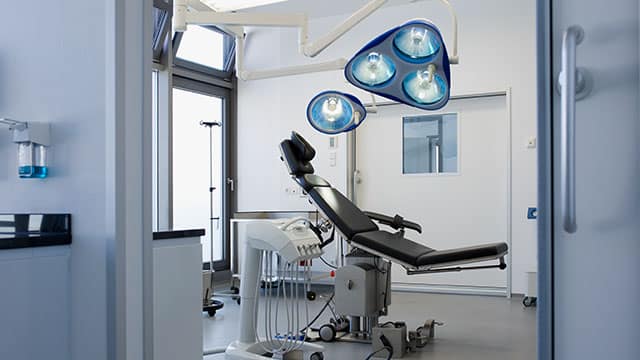If your dental professional has told you that you will undergo deep sedation, you probably have many questions. These can include: How long will I be under? Will I feel anything? What is deep sedation? Let's go over the different sedation types, why you might need deep sedation, what it entails, and its pros and cons.
Deep sedation is a drug-induced depression of consciousness in which you cannot be easily aroused. Think of it as being on the brink of unconsciousness. It's the third tier of the three types of sedation used in dentistry.
Three Types of Sedation
The level of sedation that's right for your particular circumstance depends on a few different factors. According to the American Society of Anesthesiologists (ASA), these factors include your health, the treatment you are receiving, and your age.
The first type is minimal sedation. With minimal sedation, you'll likely feel more relaxed during treatment. However, you should still be able to answer questions and follow simple instructions.
The second level is moderate sedation. With moderate sedation, you'll usually get pretty tired and might drift off to sleep. You're less likely to be able to answer questions and might not remember what went on.
The third level is deep sedation. If you're in this state, you're likely to be asleep but able to respond to a repeated sharp touch, such as being poked. After the sedation wears off and your treatment is over, you likely won't remember most of the experience. Some people may need equipment to help them breathe while they are deeply sedated.
Sedation vs. Anesthesia
Whether it's deep, moderate, or minimal, sedation is a type of anesthesia. Other types of anesthesia used during dental work include local and general. Local anesthesia numbs the treatment area. You are alert and awake during the procedure.
When you receive general anesthesia, you're unconscious. If you're under general anesthesia, you'll be unresponsive until the anesthetic wears off. This is a significant difference to note from sedation, where you can wake up with stimulation.
When Is Deep Sedation Used?
When would your dental professional recommend deep sedation instead of local or general anesthesia? It depends. In many cases, you'll have a choice when it comes to the sedation or anesthesia options you receive. But if your dental professional recommends a deeper sedation level for a particular procedure, there is often a compelling reason for them to do so. You can ask them why they are recommending a specific form of sedation and discuss your options.
What Happens During Sedation
When preparing for surgery, it's always helpful to get a "lay of the land" to understand and feel more confident in the situation. That's why getting to know who and what will be in the room with you is helpful!
Your dental professional will most likely give you the sedative through an IV at the start of your procedure. As noted in the American Dental Association's guidelines on sedation and anesthesia, at least three dental professionals need to be in the room when you undergo deep sedation. These professionals include a trained dentist who will perform the procedure and administer the sedative and two other healthcare professionals who will assist the dentist and keep an eye on you.
The ADA also notes that specific equipment must be in the room where sedation is administered. These include a device to monitor your breathing and systems to support you in the unlikely case that complications develop. A dental professional will watch your breathing, temperature, blood pressure, and heartbeat throughout the procedure. And once you wake up, you'll likely be able to go home within a few hours!
Deep Sedation Pros and Cons
There are a few reasons that deep sedation may be the right choice for your procedure. Most importantly, it can help you relax and allow you to be asleep and experience your procedure without pain or discomfort. The cons are the cost (if your dental insurance does not cover it or if you're uninsured) and the time it will take for you to regain your full range of cognition and motor skills. When you awaken, you may be groggy and have slower reflexes for a few hours.
Sedation Risks and Concerns
Not all dental professionals have the qualifications to administer sedation. A dentist needs to complete an advanced training program and get specific certifications for a license to administer sedation and comply with ADA guidelines.
Before you start thinking about which sedation is right for you, your dental professional will review your medical history to verify that sedation is an appropriate choice. You should list the medications you take and let your dental professional know if you're pregnant. These factors may affect the decision about sedation.
All types of sedation are generally safe. And the special precautions taken during a procedure help make the process even safer! Even so, it's completely normal to feel anxious or have further questions about sedation and anesthesia techniques. If you still have concerns and questions, your dental professional can answer them and help you feel confident and assured with whichever one you choose!
ORAL HEALTH QUIZ
What's behind your smile?
Take our Oral Health assessment to get the most from your oral care routine
ORAL HEALTH QUIZ
What's behind your smile?
Take our Oral Health assessment to get the most from your oral care routine














